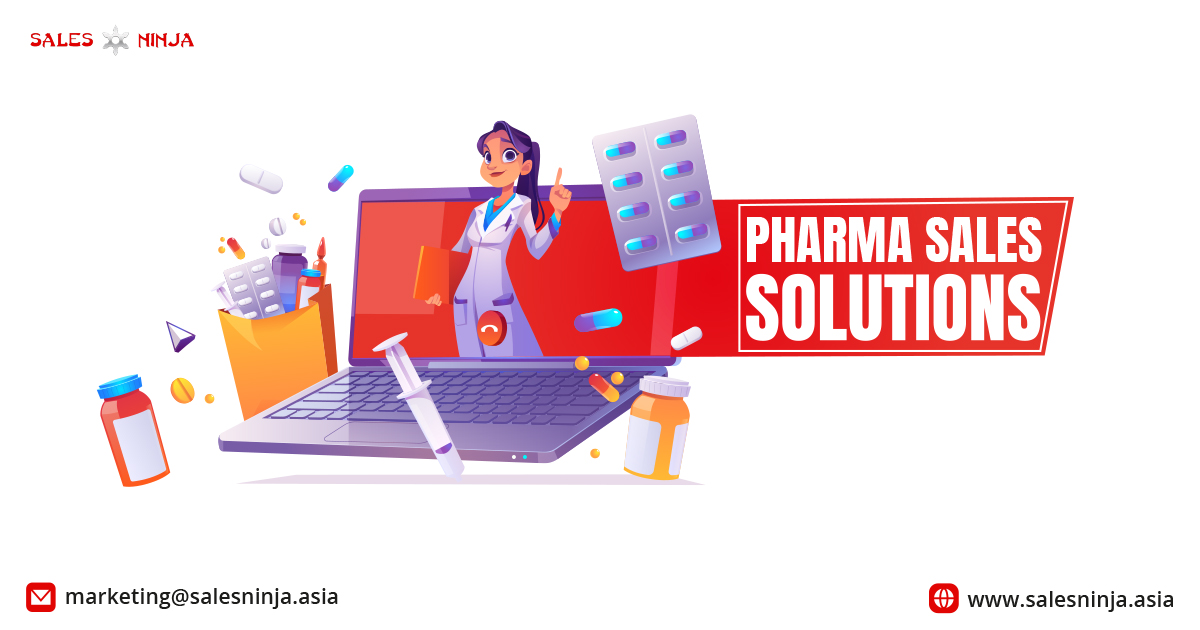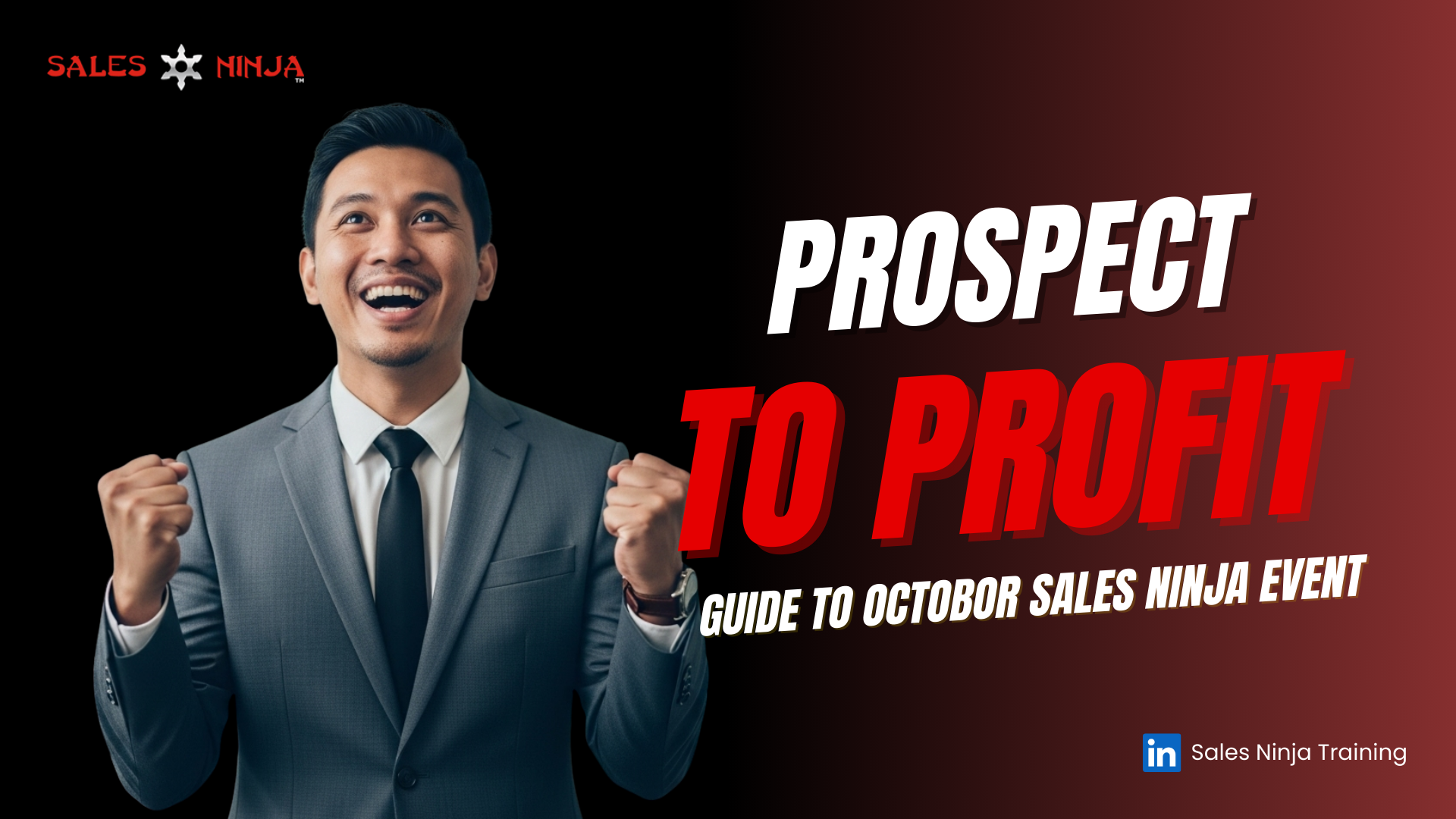The pharmaceutical sales industry is really important in healthcare. It helps connect drug companies with doctors and other healthcare providers to make sure patients get the medicines they need. Essentially, sales teams in this industry link new medicines with the doctors who prescribe them.
But right now, the pharma industry is facing lots of challenges in its sales process. Things like products looking too similar, not having better ways to communicate, more and stricter rules, salespeople not having the right skills, and targeting new markets are some of the big issues. In simple terms, the challenges keep increasing. So, let’s talk about some good ways to deal with them.
Pharmaceutical Sales
Before addressing the challenges, we need a clearer and better view of pharmaceutical sales. What exactly is Pharmaceutical Sales?
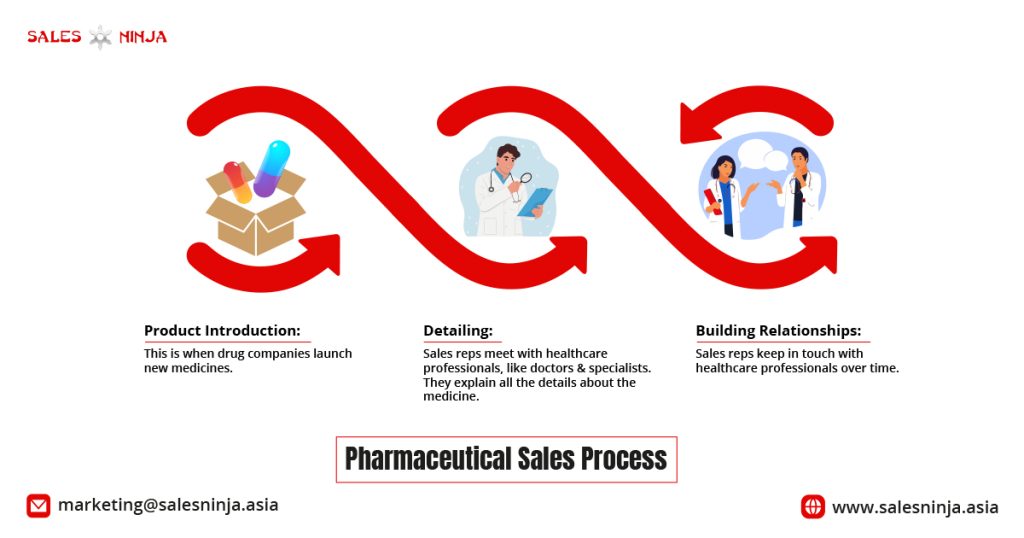
Pharmaceutical Sales is all about promoting and selling medications to healthcare providers like doctors and pharmacies. This can happen in a few ways: directly, through sales representatives, or with the help of intermediaries called distributors, and some of the most important steps in this process are:
Product Introduction: This is when drug companies launch new medicines. They do lots of research, make the medicine, and get all the approvals they need.
Detailing: In this step, sales reps meet with healthcare professionals, like doctors and specialists. They explain all the details about the medicine – what it does, how safe it is, and what makes it special. This helps doctors understand the medicine better.
Building Relationships: Sales reps don’t just stop after selling the medicine. They keep in touch with healthcare professionals over time. They want to be a trusted partner for healthcare solutions.
So, in this whole process, sales reps are like the main actors. If we look closely at their job, we see they have some key tasks:
- Making and keeping good relationships with customers.
- Teaching doctors about how different medicines work and what their side effects might be.
- Staying updated on new medicines and healthcare stuff by going to workshops.
- Going to sales meetings to learn about what the company wants and the new medicines they’re selling.
- Checking out the competition and keeping records of their sales.
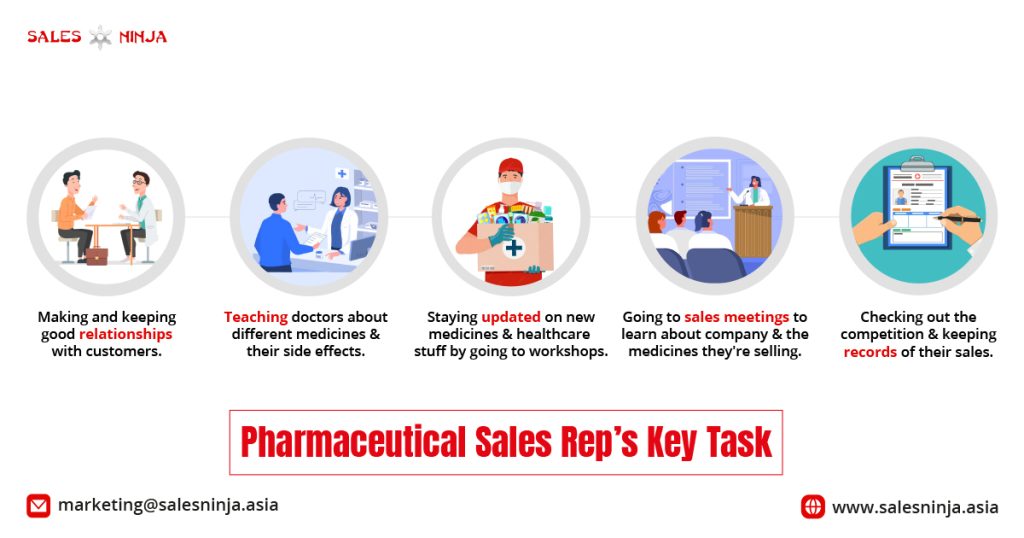
Now, let’s proceed to the following step, where we’ll explore the challenges currently encountered by Pharmaceutical Sales and discuss potential solutions.
Retaining customers in an increasingly competitive market
Retaining customers in the competitive pharmaceutical sales field is a major challenge. Many companies offer similar products, so it’s hard to make sure customers stay loyal. A report says that, on average, doctors get 2,800 contacts from pharmaceutical companies each year. That’s a lot of competition! Additionally, competitors sometimes provide lower prices and better deals, making it even harder for pharma reps to differentiate themselves, build strong relationships with doctors, and maintain product sales.
To overcome these challenges, it’s essential to think creatively and highlight the unique qualities of your products. However, it’s not a good idea to speak badly about your competitors, like saying, “The other brand is not trustworthy. People always complain about them! Their syringes used to have problems with the medical board.” Talking negatively about your competition won’t help you make a sale and could even make you lose it because it’s unprofessional.
Instead, focus on finding something that sets you apart, a “differentiator,” which ensures you win deals without putting your competitors down. Doctors and healthcare providers have many choices for prescribing medicines, but you can still make your content stand out and show that your products are innovative or better than what’s already available.
Alongside clinical advantages, emphasize the nonclinical advantages when presenting your products to doctors and other decision-makers.
Limited access to healthcare professionals
In the pharmaceutical industry, sales representatives have traditionally relied on face-to-face visits to promote products and medications. However, this approach is facing increasing challenges due to regulatory constraints, industry codes, and laws that demand transparency in financial relationships between healthcare providers and pharmaceutical companies.
As a result, pharmaceutical sales reps are encountering significant hurdles when trying to access physicians and other prescribers. Many healthcare institutions and practices are updating their policies to ensure compliance with these regulations. A recent study by CMI/Compas revealed that approximately half of physicians are now placing restrictions on visits from pharmaceutical reps in various ways.
This situation has compelled pharmaceutical companies to seek alternative communication channels to ensure that their products and messages reach prescribers effectively. There are many opinions available in this situation, and discovering the most effective way to reach everyone is essential.
One such solution is connecting with healthcare professionals through digital marketing channels like email, which physicians and other healthcare buyers already trust and frequently use. Through this, you can provide relevant and valuable information in a digital format and physicians can access this information at their convenience, eliminating the need for in-person meetings, which may not be practical to organize.
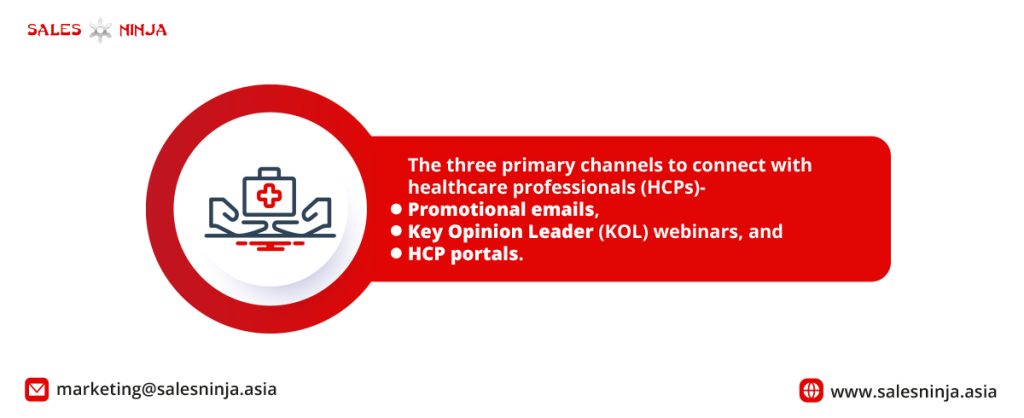
The key to successful product promotion, especially when physical rep access is limited or restricted, lies in understanding each physician’s media preferences, demographics, and communication habits. Armed with this information, pharmaceutical companies can execute specific strategies across various targeted digital channels to effectively reach their intended audience.
Convincing physicians to switch from established brands to new ones
The drug’s success significantly relies on a physician’s willingness to prescribe it. Recent research conducted by Bain & Company, which surveyed 100 senior launch executives from the top 20 pharmaceutical companies, discovered that a minimum of 40% of physicians consider factors related to customer
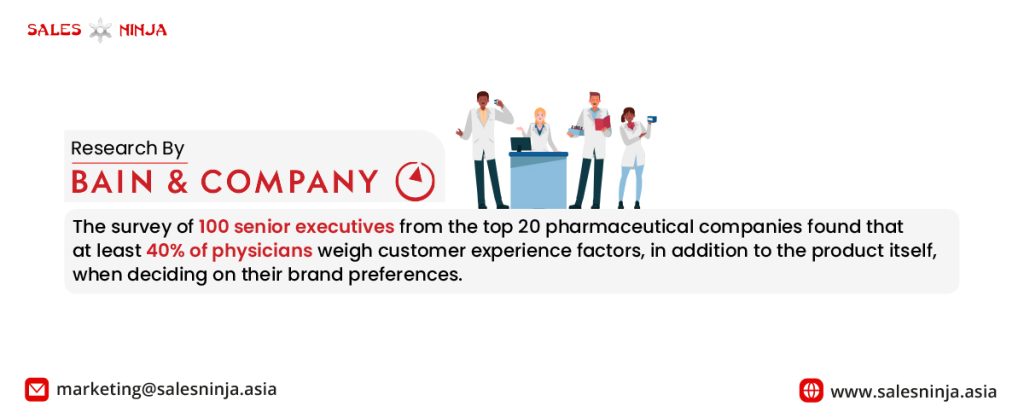
experience, beyond just the product, when forming their brand preferences. This includes how effectively pharmaceutical companies assist physicians by providing medical answers, patient identification, and facilitating peer connections. This is why persuading physicians to switch from well-established brands to new ones is a time-consuming and challenging endeavour.
However, a common complaint expressed by physicians is that sales representatives often fail to provide fresh, pertinent information. In nearly 51% of interactions, representatives present data that physicians have already encountered in their own research or previous meetings. As a matter of fact, their entire performance often comes across as scripted and lacking personalization.
As we all know, personalization is a key factor in modern sales, regardless of the industry, in the pharmaceutical sector, personalization can be a potent tool for persuading physicians to switch from established brands to new ones. This can be achieved by conducting thorough research on the physician’s background and preferences before meeting with them. Additionally, maintaining a strong and respectful relationship with healthcare professionals is vital.
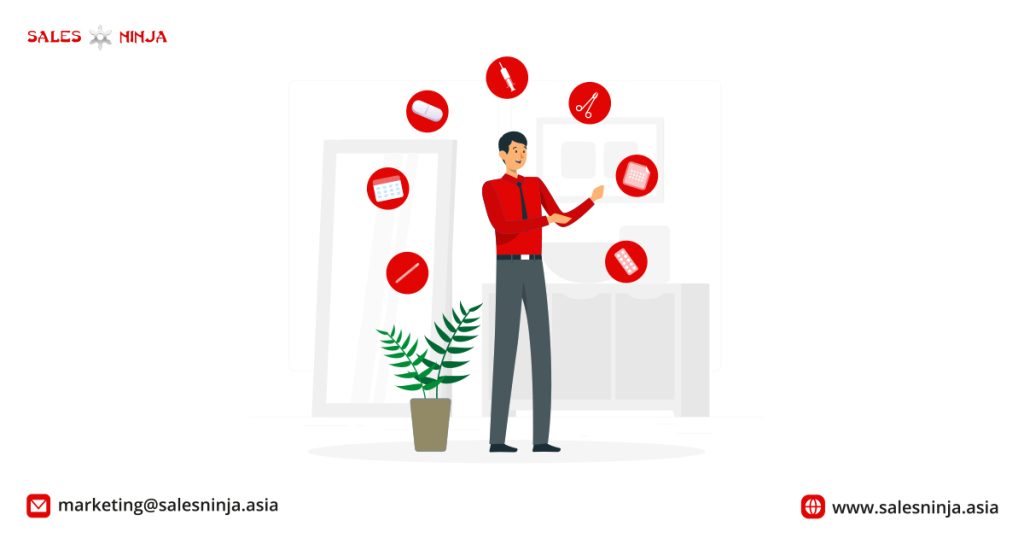
Tip: Using personalized marketing can make doctors and healthcare providers more likely to keep choosing a particular pharmaceutical company’s products.
Because if you have a strong and respectful relationship with a doctor, they are more likely to prefer your brand. So, spend time talking, meeting, and being a friendly and knowledgeable presence that doctors like.
Most importantly, keep yourself updated about new features of your products and what’s happening in the industry. Knowing a lot about these things will make doctors trust you more and like your brand.
And if you have new information about a product, especially if it’s a new one, make sure to share it. Doctors will be more interested in hearing about the latest improvements rather than hearing the same old stuff.
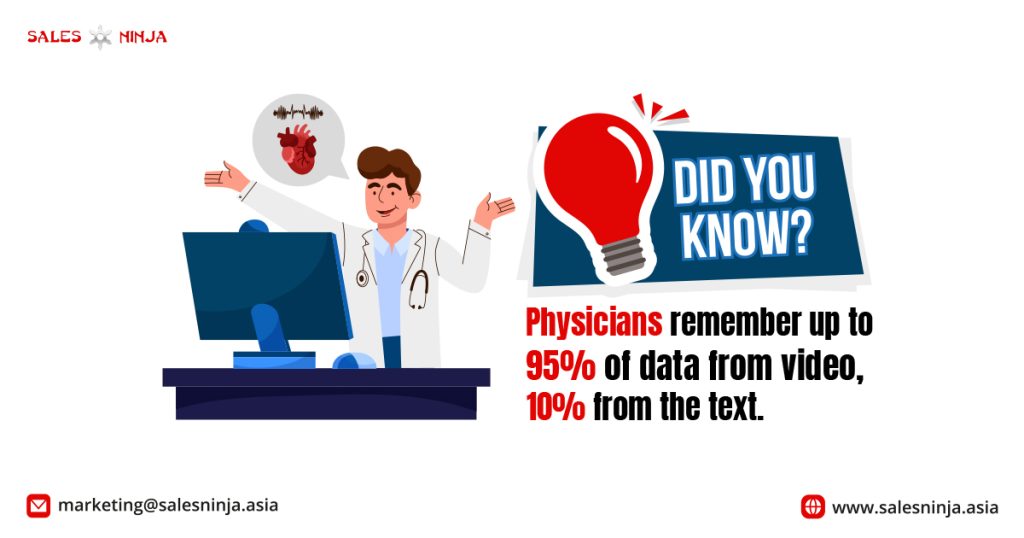
Skill gaps among Sales Reps impact sales performance
In recent years, the pharmaceutical market has gone through significant changes. Companies are focusing more on cost-cutting and meeting increasing demand without hiring more staff. This puts a lot of pressure on sales representatives who not only need to boost sales but also ensure their brands generate substantial profits.
Moreover, the influence of non-physician customers like patients and payers has been on the rise in many countries. This poses an extra challenge for sales representatives as they need to improve their promotional efforts targeting these new customer groups.
However, when it comes to sales reps, there’s a noticeable skills gap among today’s sales reps, with around 60% of them facing various challenges. These challenges include problem-solving, adapting to different situations, and effectively connecting with clients and colleagues. Many also struggle to engage with clients at the right time and find it difficult to network and build the right connections, both with clients and within their own organizations.
Addressing this challenge involves a shift in the sales approach from product-centric to customer-centric. Rather than having all representatives promote all products indiscriminately, a more effective strategy is to specialize them in specific medicine categories and assign them to areas where their promoted products are likely to have the most impact. This approach allows for a deeper understanding of customer needs and can lead to increased sales.
Furthermore, a key strategy to overcome skill gaps is prioritizing retraining and upskilling initiatives. Sales reps should undergo comprehensive training programs designed to enhance their problem-solving capabilities, adaptability to changing market conditions, and the development of improved communication and interpersonal skills. These programs are essential for equipping reps with the skills needed to excel in the evolving pharmaceutical landscape.
Solving Pharma Sales Challenges With Sales Ninja
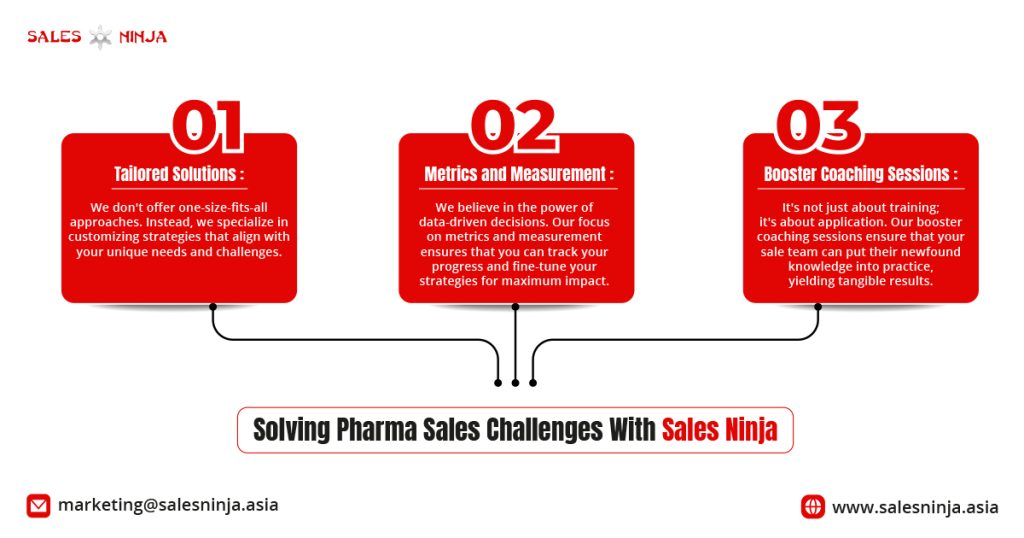
Sales Ninja, a specialized Sales Training provider, is uniquely positioned to transform your pharmaceutical sales teams. Our proven methodology is designed to drive real change, turning obstacles into opportunities. Here’s how we can help you:
- Tailored Solutions: We don’t offer one-size-fits-all approaches. Instead, we specialize in customizing strategies that align with your unique needs and challenges. Whether it’s addressing customer shifts or boosting sales performance, we’ve got you covered.
- Metrics and Measurement: We believe in the power of data-driven decisions. Our focus on metrics and measurement ensures that you can track your progress and fine-tune your strategies for maximum impact.
- Booster Coaching Sessions: It’s not just about training; it’s about application. Our booster coaching sessions ensure that your sales team can put their newfound knowledge into practice, yielding tangible results.
Don’t let challenges hold you back—let Sales Ninja guide your pharmaceutical sales teams toward success. Visit our website to schedule a consultation with our experts: https://salesninja.asia/contact/

